The healthcare industry is perpetually soaring heights, with the implementation of advanced machine learning and artificial intelligence. Machine learning on enabling the extrapolation of empirical evidence to provide Clinical Decision Support (CDS) to physicians and the workforce has even widened the margin for revenue generation. Based on the algorithms and data, AI aids in identifying patterns, providing automated insights to healthcare providers, with increased precisions and predictive analysis.
5 Ways Artificial Intelligence and Machine Learning Are Transforming Medicine
1. Disease Diagnostics
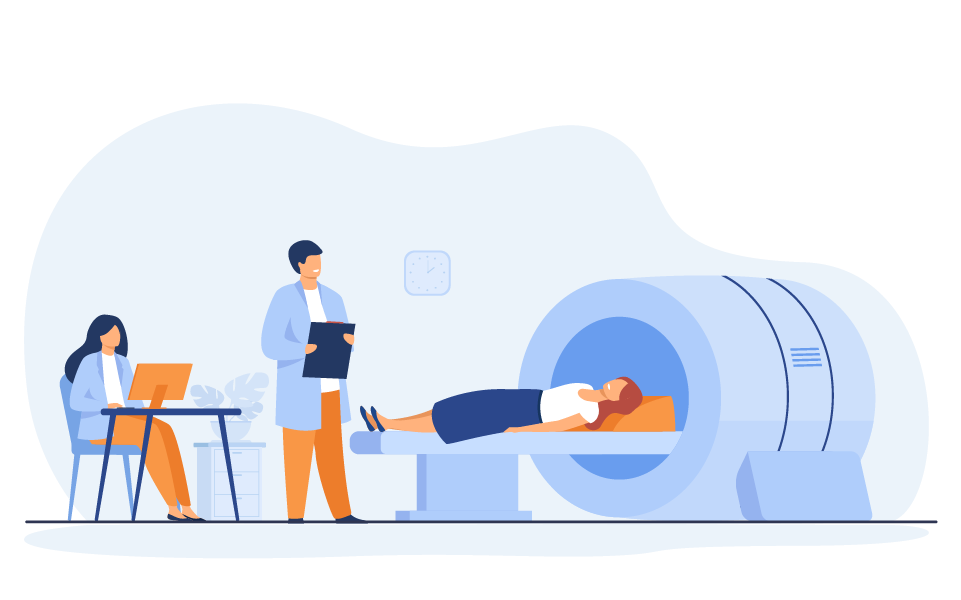 Disease diagnostics being the primary stage of any healthcare treatment is the stimulator, which sets off the successive events in action. For error-free diagnosis, experts have to undergo extensive medical training. In many fields, the demand for experts far exceeds the supply, resulting in a stressful work environment. Artificial intelligence can help overcome this imbalance by automating and accelerating diagnostics. Healthcare facilities can swiftly combat workload pressure by easing diagnosis with faster decision making, automation, management, and workflows. It can support radiologists and pathologists, diagnose a wide range of anomalies through medical imaging. Artificial intelligence can assess the risks of cardiac health by identifying cardiovascular abnormalities. It can point out critical findings like detecting fractures or other musculoskeletal injuries, flagging the root cause of chronic pain, and diagnose cancers, neurological diseases, thoracic complications. With the prediction of strokes, AI can help create better treatment plans beforehand.
Disease diagnostics being the primary stage of any healthcare treatment is the stimulator, which sets off the successive events in action. For error-free diagnosis, experts have to undergo extensive medical training. In many fields, the demand for experts far exceeds the supply, resulting in a stressful work environment. Artificial intelligence can help overcome this imbalance by automating and accelerating diagnostics. Healthcare facilities can swiftly combat workload pressure by easing diagnosis with faster decision making, automation, management, and workflows. It can support radiologists and pathologists, diagnose a wide range of anomalies through medical imaging. Artificial intelligence can assess the risks of cardiac health by identifying cardiovascular abnormalities. It can point out critical findings like detecting fractures or other musculoskeletal injuries, flagging the root cause of chronic pain, and diagnose cancers, neurological diseases, thoracic complications. With the prediction of strokes, AI can help create better treatment plans beforehand.
At Gleecus, our team of experts has designed an AI solution called Detekt Covid 19 that can detect covid from chest x-ray scans, with the help of deep learning. Diagnostic centers can implement this technology with the product and image repository, procuring faster and accurate diagnosis, of Covid-19 in patients. Here is a sneak peek at how Detekt Covid 19 works.
2. Drug Development
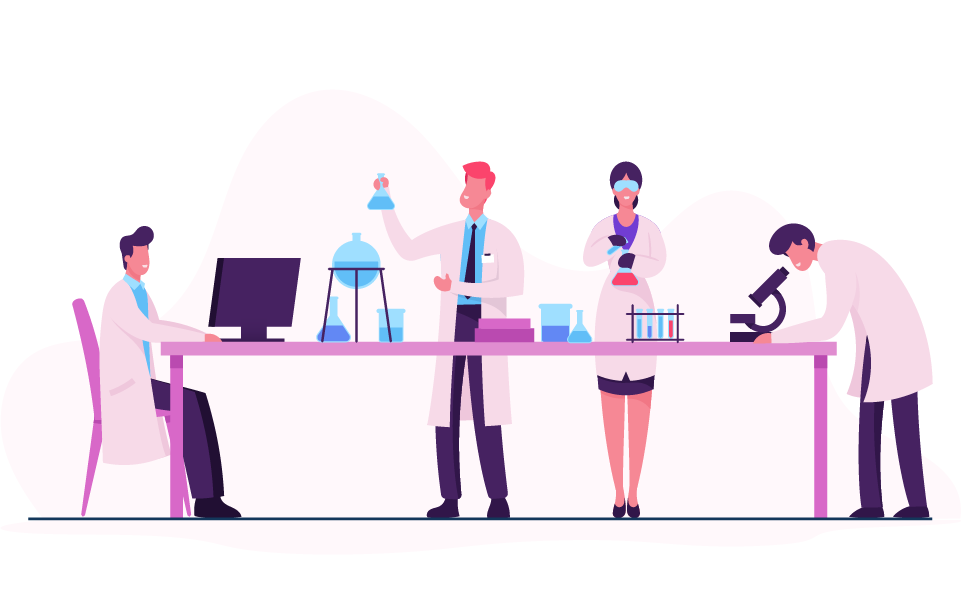 The traditional methods used for drug development are time-consuming and cost a great deal. AI and machine learning drastically ease and speed up the process of designing a drug. Upon the onset of covid-19, AI has been a great contributor to drug development, where it was used to identify and replicate the protein structure. It helped accelerate drug discovery, Through validation and virtual screening.
The traditional methods used for drug development are time-consuming and cost a great deal. AI and machine learning drastically ease and speed up the process of designing a drug. Upon the onset of covid-19, AI has been a great contributor to drug development, where it was used to identify and replicate the protein structure. It helped accelerate drug discovery, Through validation and virtual screening.
- Validation and Molecular Target Identification
In the primary stage of molecular target identification, AI and machine learning are used to identify genes, proteins, or other molecules to target for measuring drug potency. Based on their druggability and safety, these targets are identified. AI uses computer vision to study these 3D protein structures.
- Repurposing Drugs
As drugs often interact with a lot of other molecules apart from the target. It is crucial to study the drug molecule interaction parallelly to repurpose the drugs to treat other diseases which have no effective cure. AI enables this study and aids in bridging the gap between drug development and its implementation in clinical practices.
- Clinical Research
Analyzing and monitoring data is a time-consuming and manual process, carrying a risk of failure considering human errors. AI algorithms can process enormous amounts of data with faster and more accurate results. AI in clinical trials will yield better patient compliance and reduce the trial cost. It will improve the efficiency of identifying the impact of drugs and treatment with reliable evidence.
3. Health Monitoring
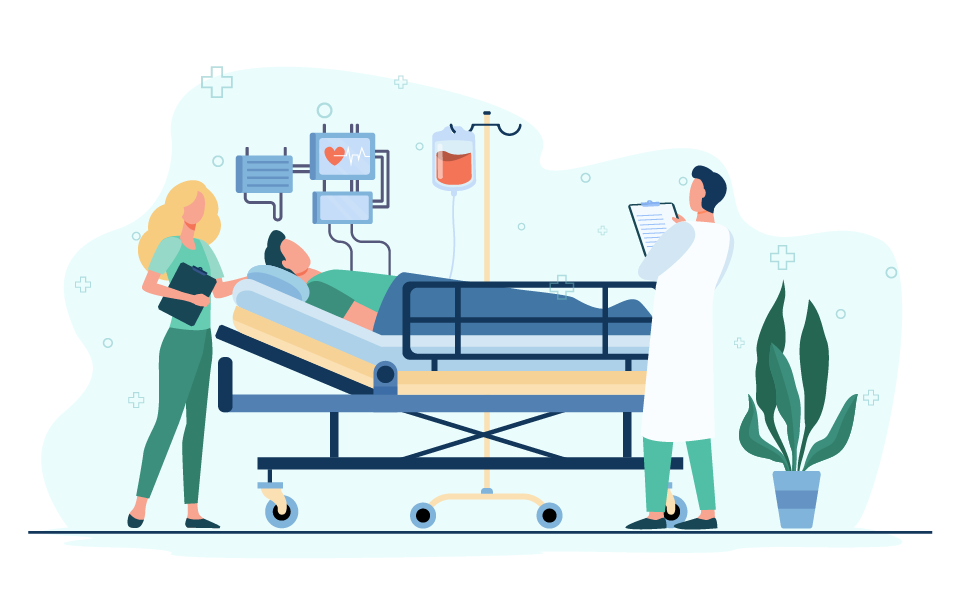 Continuously monitoring patients across various parameters results in large amounts of unprocessed and unorganized data. Big Data analysis in AI, can filter the data and extract the necessary information. The analytics not only help healthcare practitioners assess patients in the present, but they will also aid in predicting future health conditions. Wearables and embedded biosensors, such as continuous glucose monitors, blood pressure monitors, pulse oximeters, ECG-monitor are reigning in managing chronic conditions. Smart prosthetics and implants are gaining momentum as monitoring devices, during the post-surgery or rehabilitation period, to avoid readmission or complications. Innovations such as digital pills and Nano-Robots, created for monitoring medication adherence also promise a bright future. Promising ventures are spearheading innovative endeavors of creating AI solutions for remote healthcare. AICure’s IMA platform analyses facial expressions to measure any concerning health changes, along with ensuring remotely based patients follow medical protocol regularly. A startup called Feebris in the UK focuses on vulnerable populations, children and the elderly, to detect complex respiratory conditions with AI-powered technology. Advanced materials and smart fabrics are opening new frontiers in wound management and cardiac monitoring, the report notes.
Continuously monitoring patients across various parameters results in large amounts of unprocessed and unorganized data. Big Data analysis in AI, can filter the data and extract the necessary information. The analytics not only help healthcare practitioners assess patients in the present, but they will also aid in predicting future health conditions. Wearables and embedded biosensors, such as continuous glucose monitors, blood pressure monitors, pulse oximeters, ECG-monitor are reigning in managing chronic conditions. Smart prosthetics and implants are gaining momentum as monitoring devices, during the post-surgery or rehabilitation period, to avoid readmission or complications. Innovations such as digital pills and Nano-Robots, created for monitoring medication adherence also promise a bright future. Promising ventures are spearheading innovative endeavors of creating AI solutions for remote healthcare. AICure’s IMA platform analyses facial expressions to measure any concerning health changes, along with ensuring remotely based patients follow medical protocol regularly. A startup called Feebris in the UK focuses on vulnerable populations, children and the elderly, to detect complex respiratory conditions with AI-powered technology. Advanced materials and smart fabrics are opening new frontiers in wound management and cardiac monitoring, the report notes.
4. Personalized Treatment
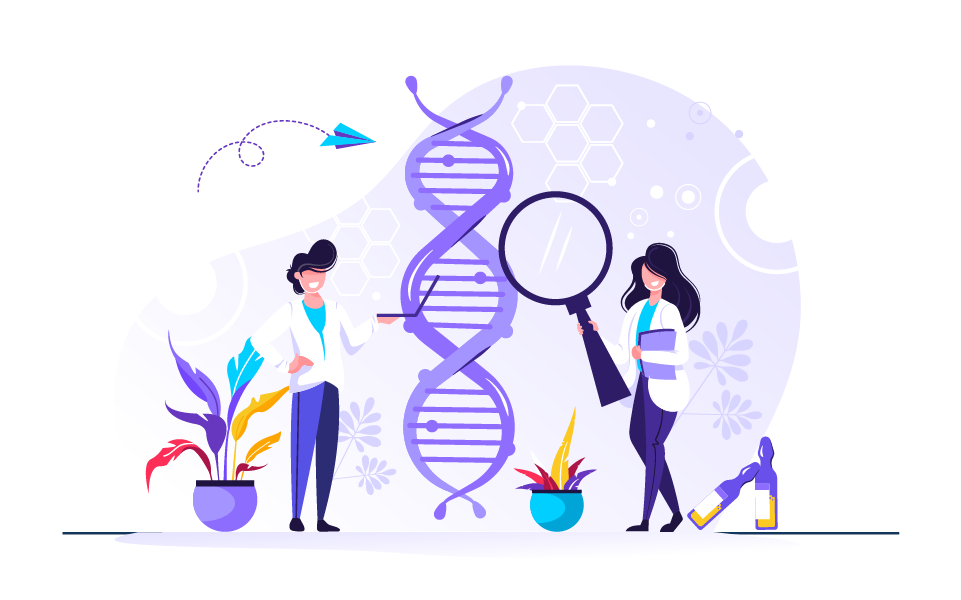 The genetic code of every human body is unique. Hence in the case of personalized medical treatment, genetic tests are imperative. To understand a disease, understanding the patient’s biology is a requisite. Upon studying the genes involved in the disease, medical practitioners meticulously evaluate the health of a person. Researchers examine the SNPs, single nucleotide polymorphisms, the small variables that occur more frequently in people with a particular disease than in people without the disease. These variables also help identify genes that may contribute to a person’s risk of developing a specific disease. It is easier to predict the disease risk for a person upon thoroughly studying the disease-carrying genes. It allows the physician to initiate preventative treatment before the disease presents itself in their patient.
The genetic code of every human body is unique. Hence in the case of personalized medical treatment, genetic tests are imperative. To understand a disease, understanding the patient’s biology is a requisite. Upon studying the genes involved in the disease, medical practitioners meticulously evaluate the health of a person. Researchers examine the SNPs, single nucleotide polymorphisms, the small variables that occur more frequently in people with a particular disease than in people without the disease. These variables also help identify genes that may contribute to a person’s risk of developing a specific disease. It is easier to predict the disease risk for a person upon thoroughly studying the disease-carrying genes. It allows the physician to initiate preventative treatment before the disease presents itself in their patient.
5. Surgical Treatment
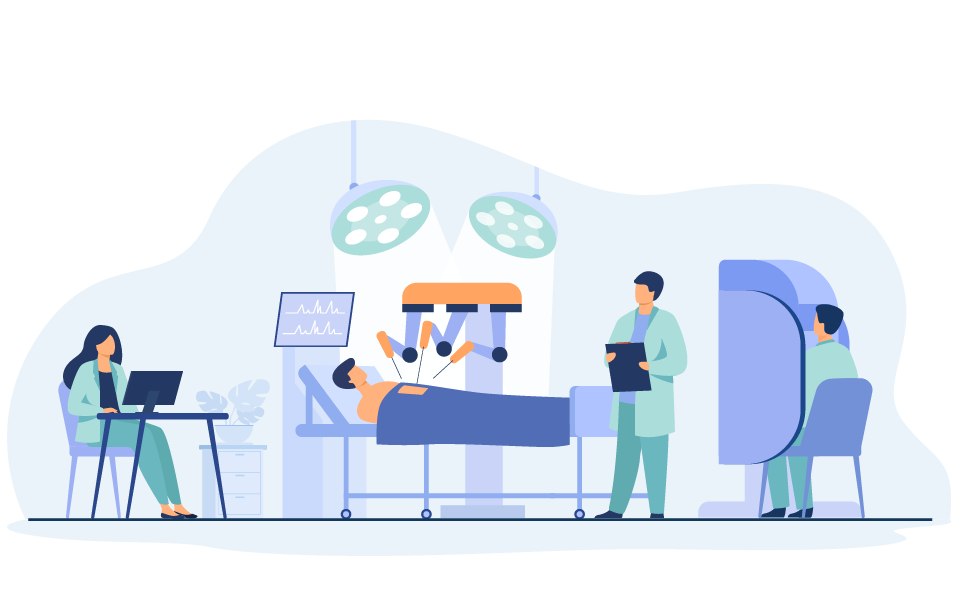 AI has revolutionized surgeries with technological advancements in imaging, navigation, and diagnosis. It is the keystone for both preoperative and intraoperative guidance. Ai plays a vital role during the preoperative planning, as surgeons plan the surgical procedure based on existing medical records and imaging for a successful operation. Concurrently, computer-aided intraoperative guidance has become the bedrock of minimally invasive surgeries (MIS) performed to reduce trauma. During MIS, surgical robots can surpass human performances with their extraordinary caliber for phenomenal decision-making, precision, and safety. Robots can use the data from past operations to inform new surgical techniques. With an estimated value of $40 billion to healthcare, robots can analyze data from pre-op medical records to guide a surgeon’s instrument during surgery, leading to a 21% reduction in a patient’s hospital stay.
AI has revolutionized surgeries with technological advancements in imaging, navigation, and diagnosis. It is the keystone for both preoperative and intraoperative guidance. Ai plays a vital role during the preoperative planning, as surgeons plan the surgical procedure based on existing medical records and imaging for a successful operation. Concurrently, computer-aided intraoperative guidance has become the bedrock of minimally invasive surgeries (MIS) performed to reduce trauma. During MIS, surgical robots can surpass human performances with their extraordinary caliber for phenomenal decision-making, precision, and safety. Robots can use the data from past operations to inform new surgical techniques. With an estimated value of $40 billion to healthcare, robots can analyze data from pre-op medical records to guide a surgeon’s instrument during surgery, leading to a 21% reduction in a patient’s hospital stay.
Conclusion
AI-driven technologies have infiltrated every tributary of the healthcare sector, creating path-breaking discoveries and perpetually evolving. Medical enterprises and practitioners can now suffice the increasing demand for error-free, speedier, and cost-effective treatment, reaping better monetary benefits over time. Implementation of AI has now become a prerequisite for the leading healthcare facilities to stay at the forefront. In case you are looking for AI-based solutions in Healthcare, you are at the right place. Get in touch with us at [email protected] or call at U.S. +1 347 901 4845/ IND +91 40 2355 2038